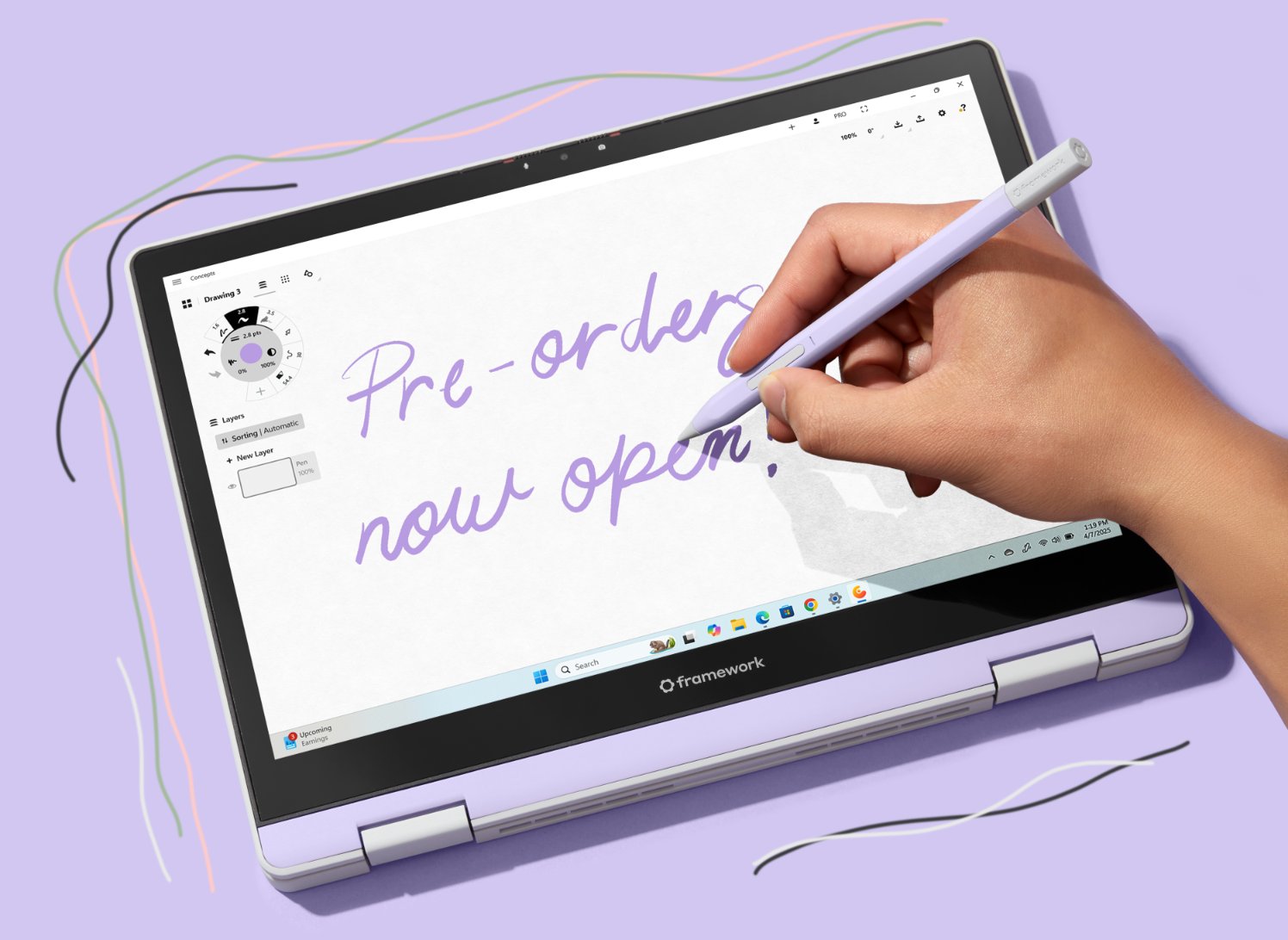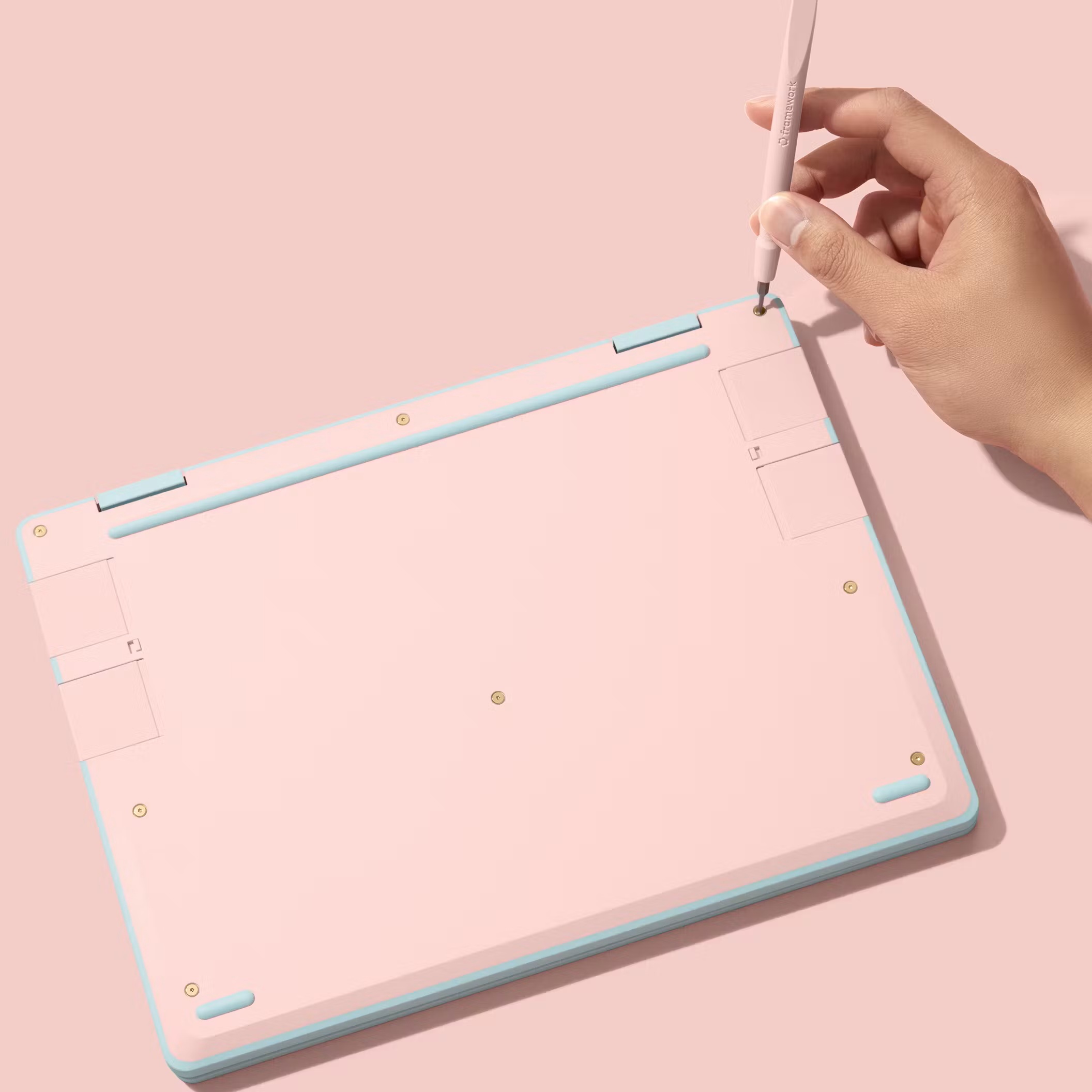Framework is opening US preorders for its new Laptop 12 today, a couple of months after announcing the system at an event in February. Framework's DIY edition of the laptop, which is missing RAM, an SSD, a USB-C charger, and an OS and requires some assembly, will start at $549. A fully assembled pre-built version with 8GB of RAM, a 500GB SSD, a 60 W charger, and Windows 11 Home starts at $799.
All preorders placed on Framework's site require a $100 deposit, and almost all configurations begin shipping in July. A first batch of systems is slated to ship in June, but this requires a $250 donation to Hack Club; Framework says the donation will be used to buy Framework 12 laptops for high school students.
The Laptop 12 was built to be a more budget-friendly system, which is reflected in its specs, screen size, and its mostly plastic construction. But like the Laptop 13, the Laptop 12 prioritizes upgradeability and repairability and retains the USB-C-based Expansion Card system that was the Laptop 13's biggest innovation when it was introduced. Each Laptop 12 has four Expansion Card bays plus a headphone jack, allowing the installation of USB-C, USB-A, DisplayPort, and HDMI ports, as well as the other Expansion Cards Framework offers.
The Laptop 12's specs fall far short of what is available for the Framework Laptop 13. You have a choice of 2-year-old 13th-generation Intel Core processors, either a Core i3-1315U (2 P-cores, 4 E-cores) or a Core i5-1334U (2 P-cores, 8 E-cores). This is a totally different motherboard than the Laptop 13 uses, so they won't be interchangeable, and you'll need to wait for a Laptop 12-specific upgrade if you're looking to freshen up your laptop a couple of years from now.



 Loading comments...
Loading comments...
